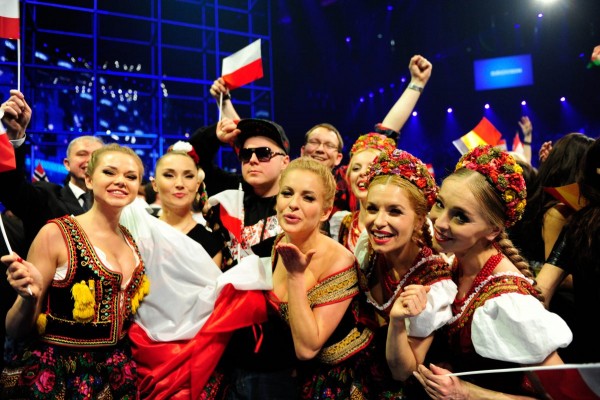Eurovision Voting: A Comprehensive Overview

Table of Contents
The Two Pillars of Eurovision Voting: Juries and Televoting
Eurovision's voting system rests on two equally weighted pillars: national juries and televoting, each contributing 50% to the final score. This dual approach aims to balance professional musical judgment with the popular opinion of the viewers.
The Role of National Juries
Each participating country appoints a national jury composed of five music professionals. These individuals are typically:
- Professional musicians
- Composers
- Songwriters
- Music journalists
- Experienced music industry professionals
The selection process aims to ensure impartiality and expertise. The juries are carefully chosen to prevent bias and maintain transparency, with strict rules in place to avoid conflicts of interest. They evaluate each performance based on criteria such as vocal ability, song composition, stage performance, and overall artistic merit. Their scores are kept confidential until the final reveal, ensuring the integrity of the Eurovision voting process.
The Power of Televoting
Televoting allows viewers to directly influence the outcome by voting for their favorite song via phone calls, SMS text messages, and dedicated Eurovision apps. This element injects a crucial layer of public opinion into the Eurovision voting procedure, adding an element of unpredictable excitement to the competition.
- Public votes directly impact the final result.
- Adds a layer of unpredictable excitement to the competition.
- Potential for regional biases in voting.
However, the potential for issues like fraud and manipulation necessitates robust security measures. The European Broadcasting Union (EBU) employs sophisticated systems to detect and prevent fraudulent voting, ensuring fair and accurate results.
Understanding the Eurovision Scoring System
Each participating country awards points to other countries based on their rankings. Points are allocated as follows: 1, 2, 3, 4, 5, 6, 7, 8, 10, and 12 points. The jury and televoting scores are calculated separately and then combined to determine the final ranking.
Calculating the Final Score
Let's illustrate with a simple example: Imagine Country A receives a total of 100 points from juries and 150 points from televoting. Its final score would be 250 points (100 + 150). This combined score is then used to determine the overall ranking of each participating country in the Eurovision Song Contest.
The Significance of "nul points"
Receiving "nul points," or zero points, means a country hasn't received any points from any other country. While disappointing, it's a part of the competition, and doesn't necessarily reflect the quality of the performance.
- Each country awards points to other participating countries.
- Higher points indicate greater preference.
- The final score combines jury and televoting results.
Ties are broken using a variety of criteria determined by the EBU, often prioritizing the country with a higher televoting score.
Controversies and Debates Surrounding Eurovision Voting
Throughout its history, Eurovision voting has seen its share of controversies. One frequent point of discussion is "neighborhood voting," where neighboring countries tend to award each other higher scores, potentially influencing the overall results.
Addressing Bias and Ensuring Fairness
The EBU continuously works to improve the transparency and fairness of the voting system. They have implemented various measures to address potential biases, including:
-
Stricter regulations on jury selection.
-
Improved fraud detection mechanisms.
-
Regular reviews of the voting procedures.
-
Accusations of bloc voting
-
Concerns about political influence
-
Calls for system reforms to enhance transparency and fairness.
These ongoing efforts aim to ensure that the Eurovision Song Contest remains a fair and enjoyable competition for all participants.
The Evolution of Eurovision Voting
The Eurovision voting system has undergone significant evolution since its inception. Early voting methods were entirely based on national juries, but the introduction of televoting revolutionized the process, adding a crucial layer of public engagement.
- Changes in voting methods over the years
- Introduction of televoting
- Improvements in fraud prevention measures
The increasing reliance on technology has further enhanced accuracy and security, mitigating the risk of manipulation and improving the overall integrity of the Eurovision voting process. These changes reflect the ongoing efforts to adapt the system to modern standards while retaining its core principles of fairness and public engagement.
Conclusion
Understanding the intricacies of Eurovision voting is crucial for appreciating the full scope of this iconic competition. From the balanced contributions of national juries and televoting to the sometimes controversial results, the voting system plays a vital role in shaping the Eurovision Song Contest's outcome. By grasping the complexities of Eurovision voting, you can engage more deeply with the event and appreciate the diverse perspectives it represents. Delve deeper into the fascinating world of Eurovision voting and become a more informed viewer!

Featured Posts
-
 Taksidi Stin Kyriaki Toy Antipasxa Sta Ierosolyma Plirofories And Symvoyles
May 19, 2025
Taksidi Stin Kyriaki Toy Antipasxa Sta Ierosolyma Plirofories And Symvoyles
May 19, 2025 -
 Najveci Eurosongski Neuspjesi Hrvatske Top 10
May 19, 2025
Najveci Eurosongski Neuspjesi Hrvatske Top 10
May 19, 2025 -
 Haalands New Bugatti Rs 44 Crore Supercar With 277 Mph Top Speed
May 19, 2025
Haalands New Bugatti Rs 44 Crore Supercar With 277 Mph Top Speed
May 19, 2025 -
 I Simaia Ston Pentadaktylo Kai To Kypriako Analysi Tis Protasis Kateynasmoy
May 19, 2025
I Simaia Ston Pentadaktylo Kai To Kypriako Analysi Tis Protasis Kateynasmoy
May 19, 2025 -
 Iran Sentences Three To Death For Mosque Attacks A Grim Verdict
May 19, 2025
Iran Sentences Three To Death For Mosque Attacks A Grim Verdict
May 19, 2025
